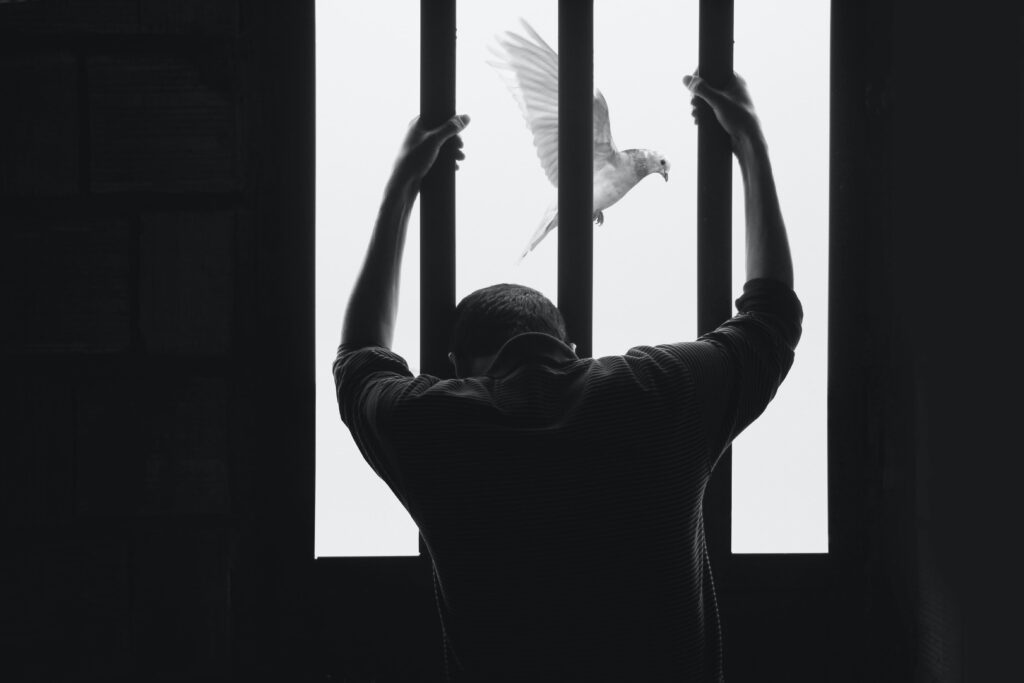
Of Mice and Men is not a happy book, but it’s a brilliant one that offers affluent folks like me a chance to rethink the story of hope and opportunity.
The work opens in a ravine with two drifter ranch hands named George and Lennie. They’re bound by a tender need for one another that appears asymmetrical in the opening scenes. Lennie’s acute mental disabilities are front and center, but it doesn’t take long to realize George needs Lennie as much as Lennie needs George. Their connection is genuine and mutual, if ultimately tragic. As you might guess by this set up, things don’t end well. It’s a powerfully written and mercifully short novel, given the storyline.
They just want what folklore promises is a little more hard work away.
No one would say that George and Lennie are brimming with hope, but they do have a dream that keeps them working other people’s land. They’re saving for a place of their own and it’s going to be a dandy (to borrow from their era). The heartfelt wholesomeness of their vision could make the most city-bound reader long for a little bit of country. They don’t want much. They just want what folklore promises is a little hard work away.
Soon after arriving at their next ranch, they meet a stable hand called Crooks (because of his bent back). Crooks has no use for dreaming and it’s not hard to understand why. His treatment on the ranch ranges from utilitarian semi-acceptance of his personhood to outright contempt but never comes anywhere near equality. The n-word flies with casual brutality a couple of times from his fellow workers, but it’s never used by the narrator’s voice. The storyteller almost always refers to him by name or on a few occasions by the descriptive term ‘negro’, which fits the age in the same way “Black” does ours. Still, it’s an intentionally troublesome portrait of how the Land of Opportunity treated so many of its sons, and daughters. Despite his enforced social station, or perhaps because of it, Crooks plays a central interpretive role in the book. He’s the story’s prophet of hopelessness and at the same time, its testimony to hope’s tenacity. Crooks exposes the world for how it treats dreamers, but can’t quite keep himself from being one.
In the landscape of characters, Crooks is the only one who reads and not coincidently the one who sees what’s bound to happen to hope. After hearing Lennie wax on about his future home, Crooks erupts,
I seen hunderds of men come by on the road an’ on the ranches, with their bindles on their back an’ that same damn thing in their heads. Hunderds of them. They come, an’ they quit an’ go on; an’ every damn one of ’em’s got a little piece of land in his head. An’ never a God damn one of ’em ever gets it. Just like heaven. Ever’body wants a little piece of lan’. I read plenty of books out here. Nobody never gets to heaven, and nobody gets no land. It’s just in their head. They’re all the time talkin’ about it, but it’s jus’ in their head.”
Of Mice and Men (pp. 76-77). Penguin Publishing Group.
That reality check should put an end to dreams, but it doesn’t. In fact, it doesn’t even do that for Crooks. George and Lennie may be poor and rootless, but they’re white and white folks, even poor ones, have the luxury of dreams. Crooks is a Black man whose life offers no luxuries, especially not grand dreams about a place of his own. Still, when he finds out that the dreamers almost have enough money to make it happen, the prophet rejects his own prophecy,
He hesitated. “ .. . If you . . . guys would want a hand to work for nothing—just his keep, why I’d come an’ lend a hand. I ain’t so crippled I can’t work like a son-of-a-bitch if I want to.”
Of Mice and Men (p. 79). Penguin Publishing Group.
Apparently, the only thing harder than hoping in a harsh world, is not hoping.
So what can Of Mice and Men teach us who inhabit a world where hope feels as safe as it is essential? Before we wonder (better instead of wondering) why some people are offended by calls to try harder and take risks, consider Crooks and Charles and Lennie. And remember that the context of our life and the lives of our kin before us can make even little dreams seem too big to dare. Hope isn’t just about enneagrams, or positive thinking, or faith (even biblical faith).
Hope isn’t a disembodied, ephemeral attitude of a heart in a vacuum. It’s not magic.
Temperament and faith matter, of course. But people hope, or don’t, in the context of the life they’ve lived and the outcomes their history has taught them to expect. Exceptions granted, that’s just as true of the hopeful as the defeated. Hope isn’t a disembodied, ephemeral attitude of a heart in a vacuum. It isn’t magic. Hope needs help. So if you believe in hope, help someone.